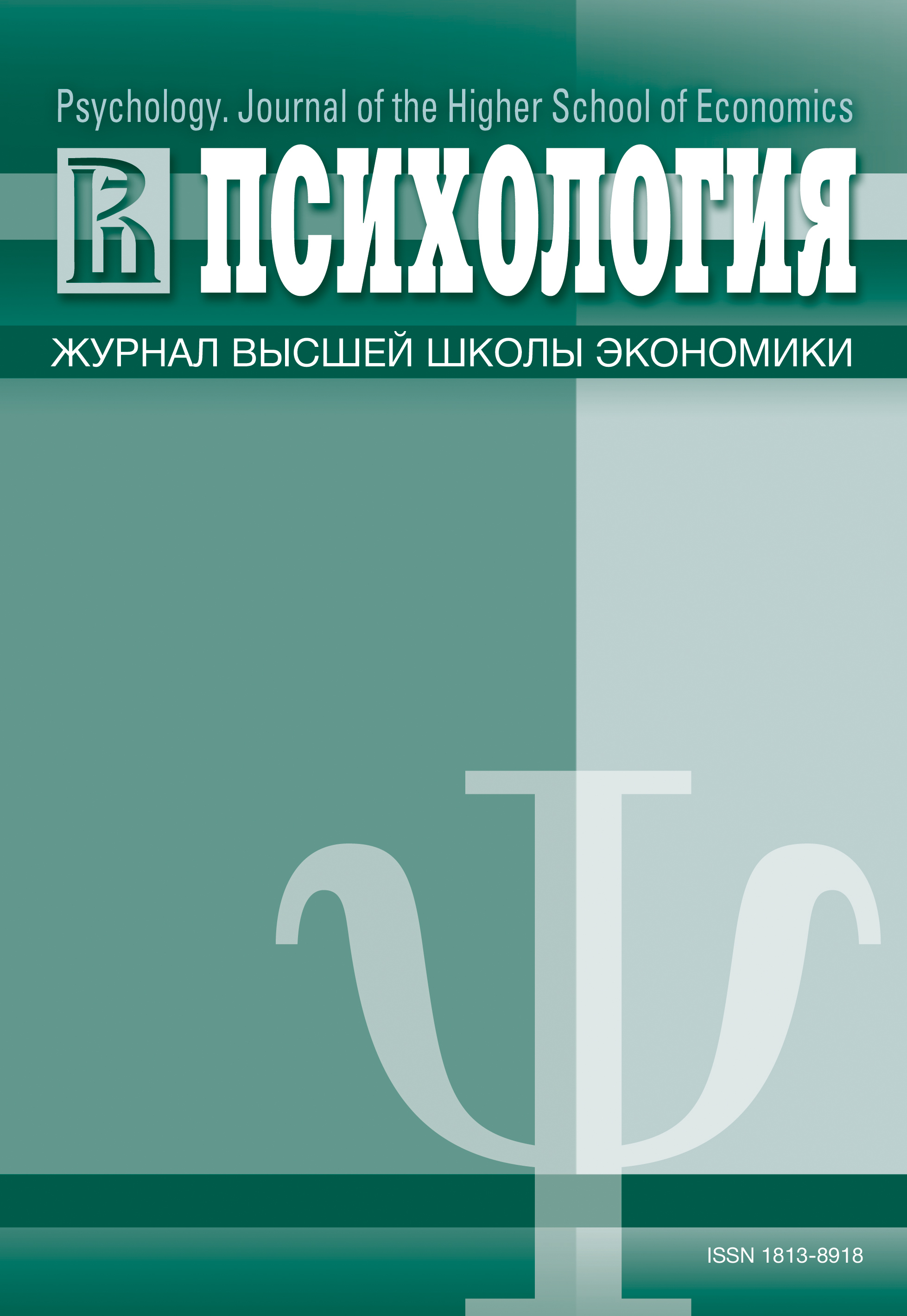Correlation of subjective feeling, understanding of emotions and bodily sensations in reaction to a funny cartoon (in Russian)
Keywords:
emotional intelligence, fun, joy, facial feedback theories, alexithymia
Abstract
Starting from the theory of W. James, the sense of bodily changes is seen as the source and the main content of the subjective feeling. There are known many common and scientific acknowledgements of this. But detection of a particular set of sensations of bodily changes, that characterize even the most fundamental emotions, encounters difficulties. In the range of empirical studies, shown in the article, the relationship between the subjective feeling and the bodily changes is placed in question. The separate issue is the role of the ability to detect one’s own feelings with the rise of emotional reaction, as many researchers (the data of their research are also given in the article) state that there is a direct linkage between this ability and emotionality. In this research the subjects were asked to estimate the intensity of joy, the quantity and the intensity of bodily sensations after watching two funny cartoons. While watching one of them they were allowed to express emotions freely, and during watching another one they were asked to withhold the smile. The order of the cartoons, the order of the instructions and the combination of each cartoon and each instruction were balanced. For the estimation of bodily sensations the subjects were offered an open list of sensations. The emotional intelligence and the level of alexithymia were also measured. We found out that the correlations between the subjective feeling, the quantity and the intensity of bodily sensations disappear when subjects withhold the expression of emotions. The contrast of means with and without the ban to express joy shows that the evaluation of the intensity of subjective feelings does not change under the influence of the ban, while the values of the intensity of bodily sensations grow significantly. As the ban to express joy did not lead to the proportionate change of the values of joy and the intensity of bodily sensations, but only to disappearance of correlations between these variables, the inference can be done that the sensation of bodily changes is only a correlate of subjective feeling that does not determine its content.Downloads
Download data is not yet available.
Published
2015-07-03
How to Cite
КравченкоЮ. Е., & БалуеваО. В. (2015). Correlation of subjective feeling, understanding of emotions and bodily sensations in reaction to a funny cartoon (in Russian). Psychology. Journal of the Higher School of Economics, 12(2), 150-159. https://doi.org/10.17323/1813-8918-2015-2-150-159
Issue
Section
Work in Progress





